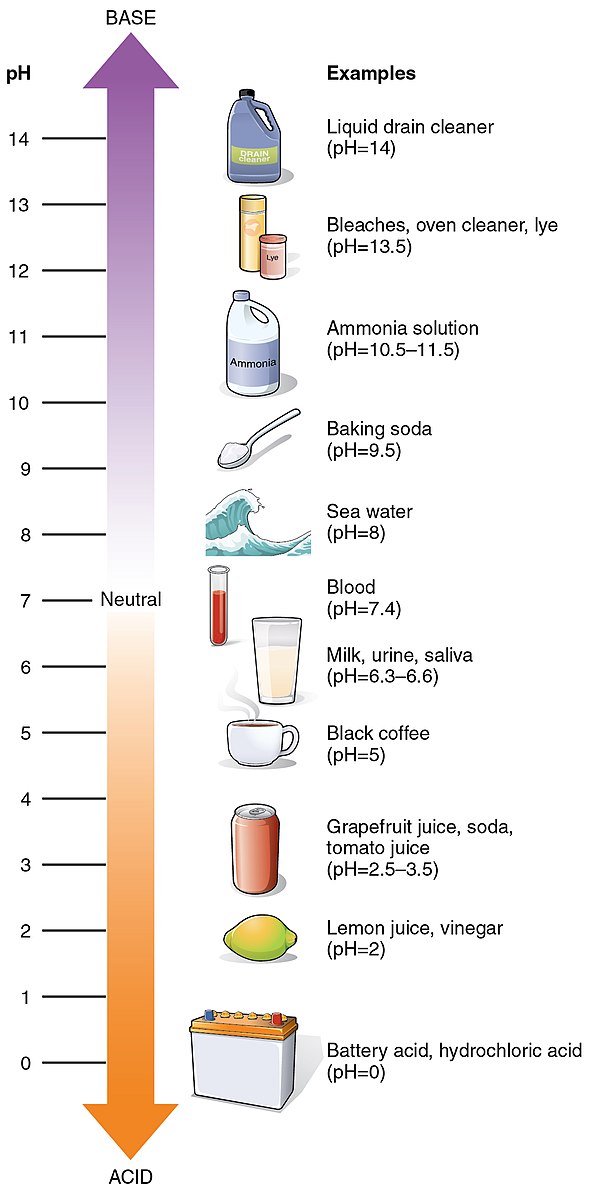The pH value of tap water in Missouri, USA, can range from 6.5 to 8.5, with an average of around 7.5, which is slightly basic. However, specific areas like St. Louis have reported higher pH values, ranging from 9.4 to 10.2. Contaminants found in Missouri’s tap water above health guidelines include Total trihalomethanes (TTHMs), Bromodichloromethane, Dichloroacetic acid, Chloroform, Haloacetic acids (HAA5), Manganese, Thallium, Aluminum, Carbon tetrachloride, Simazine, Antimony, Barium, Chloromethane, Styrene, and Trichloroethylene.
Understanding the pH of Tap Water in Missouri
The pH of tap water in Missouri can vary depending on the source and treatment process. Generally, the pH range of 6.5 to 8.5 is considered acceptable for drinking water, with 7.0 being neutral. However, some areas in Missouri, particularly St. Louis, have reported higher pH values, ranging from 9.4 to 10.2, which can be considered basic or alkaline.
Factors Affecting the pH of Tap Water
The pH of tap water can be influenced by several factors, including:
- Water Source: The pH of the water source, such as groundwater or surface water, can affect the overall pH of the tap water.
- Water Treatment: The treatment processes used by the water utility, such as disinfection, can impact the pH of the final tap water.
- Pipe Materials: The materials used in the distribution system, such as copper or lead pipes, can also influence the pH of the water.
- Geological Factors: The mineral content and composition of the local geology can contribute to the pH of the water.
Impacts of High pH Tap Water
High pH tap water, such as the values reported in St. Louis, can have several impacts on both household and aquarium applications:
- Household Use: High pH water can affect the taste and feel of the water, making it feel “slippery” or “soapy.” It can also impact the effectiveness of certain cleaning products and detergents.
- Aquarium Keeping: Aquarists in the St. Louis area have reported challenges in maintaining the desired pH levels in their aquariums. The high pH of the tap water can disrupt the balance of the aquarium ecosystem and negatively impact the health of aquatic life.
Addressing the pH of Tap Water in Missouri
 Image source: OpenStax College
Image source: OpenStax College
To manage the pH of tap water in Missouri, homeowners and aquarists can consider the following strategies:
Home Remedies for pH Adjustment
- Vinegar: Adding a small amount of white vinegar to the water can help lower the pH level. However, it’s important to use vinegar sparingly to avoid affecting the taste and potentially harming plants or animals.
- Lemon Juice: Similar to vinegar, lemon juice can be used to lower the pH level, but it should also be added cautiously.
- Peat Moss: Introducing peat moss to the water system can help lower the pH level naturally, as the tannins released by the peat moss can create a slightly acidic environment.
Water Filtration Solutions
For addressing contaminants in Missouri’s tap water, homeowners can consider using high-quality water filters specifically designed to remove the identified contaminants. Activated carbon and reverse osmosis filters are often effective at removing many of the contaminants found in Missouri’s tap water.
Aquarium pH Management
Aquarists in the St. Louis area have reported using pH-lowering products, such as “pH Down,” when performing water changes to ensure the tank water matches the desired pH level. This helps maintain the optimal pH balance for the aquarium’s ecosystem.
Conclusion
The pH of tap water in Missouri, USA, can vary significantly, with some areas like St. Louis reporting higher pH values that can impact both household and aquarium applications. By understanding the factors affecting the pH and utilizing home remedies or water filtration solutions, homeowners and aquarists can effectively manage the pH of their tap water and ensure it meets their specific needs.
Reference:
- EWG Tap Water Database: Missouri – https://www.ewg.org/tapwater/state.php?stab=MO
- EWG Tap Water Database: Missouri American – Joplin – https://www.ewg.org/tapwater/system.php?pws=MO5010413
- Missouri Department of Natural Resources: Drinking Water Watch – https://dnr.mo.gov/ccr/.
